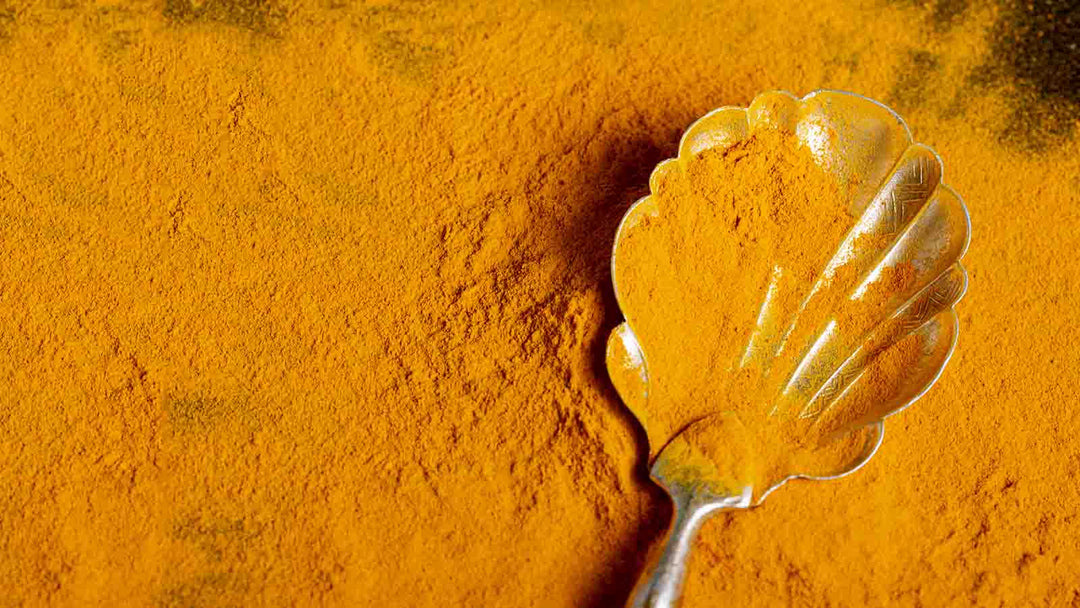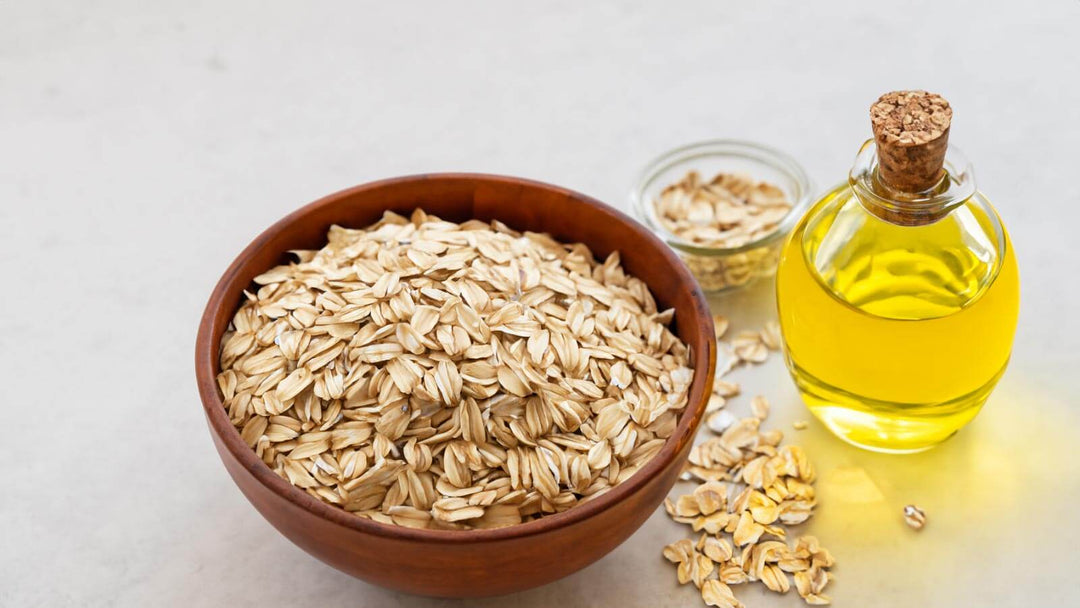Psoriasis is a chronic skin condition, characterized by patches of red, scaly skin that can be itchy and painful. It affects millions of people worldwide - and yet there is no known cure. Some medical treatments help to manage symptoms, but not all of them are accessible to the average person.
A promising, affordable, and accessible treatment for psoriasis, however, is the use of essential oils. Essential oils are used as topical treatments and known to soothe, treat, and reduce mild to moderate psoriasis symptoms.
These are the Best Natural Oils for Psoriasis

If you’re interested in treating your psoriasis naturally, consider these top 11 essential oils for psoriasis:
Avocado Oil
Avocado oil is rich in omega-3 fatty acids, including oleic acid, linoleic acid, and alpha-linolenic acid, as well as vitamins A, D, and E. Avocado oil contains compounds (like oleic acid) that can help speed up the healing process of wounds and reduce the risk of scarring. Because it is rich in essential fatty acids, it can also improve the skin's elasticity and prevent the appearance of fine lines and wrinkles.
Coconut Oil
Coconut oil is rich in saturated fatty acids, including lauric acid, caprylic acid, and capric acid, as well as antioxidants and vitamin E. Coconut oil for psoriasis is a popular treatment, as it contains antibacterial properties that fight acne-causing bacteria while also preventing breakouts. It can even help improve the texture of the skin by promoting cell regeneration.
Oat Kernel Oil
Oat kernel oil is also rich in fatty acids, including oleic acid, linoleic acid, and plenty of antioxidants. Oat kernel oil is gentle and non-irritating, making it a great natural ingredient for people with sensitive skin. It can help improve the skin's barrier function, which prevents moisture loss and protects the skin from environmental stressors.
Rosehip Oil
Rosehip oil includes omega-3 and omega-6, as well as antioxidants like vitamin C and vitamin A. While a great moisturizer, the anti-inflammatory properties of rosehip oil can help soothe redness and inflammation commonly associated with psoriasis. The antioxidants also protect the skin against damage caused by free radicals and UV radiation, brightening the skin and improves its overall appearance.
Carrot Seed Oil
Carrot seed oil is packed with beta-carotene, as well as vitamins A, C, and E. It’s great at protecting the skin from UV damage and is a fantastic moisturizer that can penetrate deeply into the skin to provide long-lasting hydration. Likewise, carrot seed oil can improve the tone and texture of the skin by promoting fast cell regeneration.
Turmeric Oil
Turmeric oil is extracted from the roots of the Curcuma longa plant. It has high amounts of curcumin, which has anti-inflammatory properties that can soothe redness and prevent flare-ups. It also has antiseptic properties that prevent infections, and because it encourages the production of collagen, it improves skin elasticity.
Chamomile Oil
Chamomile oil is extracted from the flowers of the chamomile plant. There are two types of chamomile used in skincare: Roman chamomile and German chamomile. Both types are rich in antioxidants, vitamin B, and have anti-inflammatory properties. It hydrates and nourishes the skin, and its antioxidants greatly reduce skin damage.
Lavender Oil
Lavender oil has antiseptic and antimicrobial properties that can prevent infections and scarring. Lavender oil also reduces the appearance of blemishes by regulating sebum production and preventing the growth of bacteria on the skin.
Tea Tree Oil
Tea tree oil is well-known for its powerful antibacterial, antifungal, and anti-inflammatory properties. As such, it’s commonly used to fight acne and soothe skin irritations, like psoriasis, eczema, and rosacea. Similar to lavender oil, it regulates sebum production and prevents the growth of bacteria on the skin.
Argan Oil
Argan oil is known for its nourishing and moisturizing properties. High in vitamin E and fatty acids like palmitic acid and stearic acid, it is commonly used as a natural moisturizer.
Jojoba Oil
Jojoba oil is popular for its hydrating and balancing properties. It is similar in structure to the natural oils produced by the skin, so it is easily absorbed and doesn't leave a greasy residue.

Discover Our Signature Body Oil Collection
Embarking on a journey to soothe and revitalise psoriasis-affected skin requires not just knowledge but the right natural resources. Our meticulously crafted Body Oil range stands as a beacon of relief for those navigating the challenges of psoriasis. Each oil in our collection is infused with nature's most powerful and nurturing ingredients, known for their skin-soothing and hydrating properties.
Whether you're seeking to calm inflammation, moisturize deeply, or simply give your skin the tender love it deserves, our Body Oils are designed to harmonize with your skin's natural needs. From the rejuvenating whispers of lavender to the deep, nourishing embrace of jojoba, our collection is a symphony of natural oils that resonate with the essence of earth's kindness.
Incorporating these oils into your daily skincare ritual not only offers a moment of serene self-care but also aligns with the wisdom shared in our exploration of the top natural oils for psoriasis. Let each application be a gentle reminder of your commitment to nurturing your skin, embracing the power of nature to heal and transform.
Dive into our Body Oil collection and find your perfect blend to soothe, heal, and celebrate your skin, just as nature intended.

How to Use These Essential Oils to Help with Psoriasis
Here are ways you can use essential oils to help manage psoriasis symptoms:
-
Use essential oils as a skin serum (with a carrier oil)
Use essential oils as a body or face serum, but dilute them with a carrier oil first. Carrier oils are often vegetable based and used to dilute essential oils, protecting the skin and helping them to penetrate the dermal layer. Popular carrier oils are sweet almond oil, coconut oil, and avocado oil.
-
Use essential oils in a bath
Add a few drops of essential oil to a warm bath to help soothe itchy, inflamed skin. Even here, be sure to mix the essential oil with a carrier or a small amount of unscented bath salts to help disperse the oil in the water.
-
Use essential oils in a diffuser
A diffuser is a device that disperses essential oils into the air, creating a pleasant aroma and providing therapeutic benefits. You can add a few drops of essential oil to a diffuser and let it run for a few hours to help soothe psoriasis symptoms.
-
Try a scalp treatment
There is a great deal of overlap between people who Google “essential oils” and “oil for psoriasis on scalp.” That’s because the scalp is one of the most common places where people see psoriasis symptoms. Luckily, essential oils can help soothe this area. Mix a few drops of essential oil with a carrier oil and massage into the scalp, or mix it into your shampoo and conditioner for a convenient way to soothe scalp psoriasis.

Can Essential Oils Really Help with My Psoriasis?
Some essential oils have anti-inflammatory and soothing properties that may help to reduce redness, itching, and irritation associated with psoriasis. These essential oils include tea tree oil, lavender oil, chamomile oil, and peppermint oil.
One study from Skane University Hospital in Lund, Sweden, concluded that tea tree oil appears to be highly effective in reducing skin inflammation. Another study published in Clinical, Cosmetic, and Investigational Dermatology found that seed oil was just as effective at treating skin conditions as Bosexil, a popular medication for said skin conditions.
Essential oils work so well because they are rich in fatty acids and vitamins. Fatty acids are organic molecules, important for energy production, cell membrane formation, and hormone synthesis. Vitamins, on the other hand, contain materials the body needs to stay healthy, so they are excellent at fighting off conditions like psoriasis.







